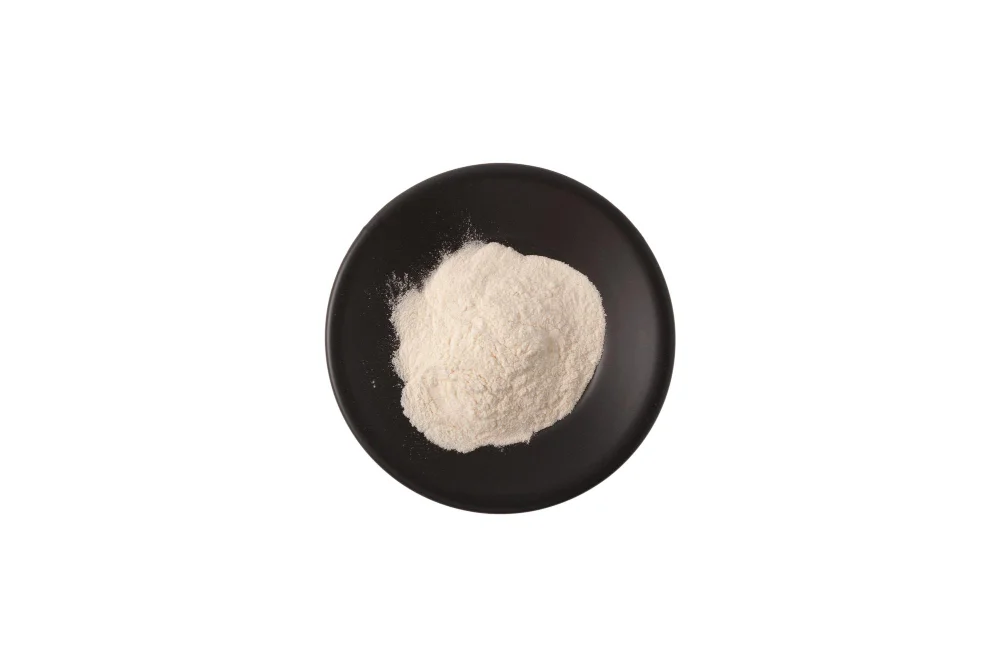We at Innoveda International General Trading recognize the value of using safe and wholesome ingredients. We explore the subject of Xanthan Gum Allergy as a reputable chemical supplier in Dubai to allay any worries you might have. Join us as we examine the information and issues related to this ubiquitous food additive.
Dependable Source for Xanthan Gum in Dubai:
We place a high priority on safety and education when using chemical components at Innoveda International General Trading. As a top supplier of chemicals in Dubai, we understand how critical it is to be aware of any dangers that could be brought on by additives like xanthan gum. We hope to allay any worries you may have about Xanthan Gum allergies in our extensive blog and offer helpful information so that you may make wise decisions.
Ingredient Safety is Something:
-
A Adaptable Food Additive:
Learn about the many functions of Xanthan Gum in the food business, such as stabilizing and thickening, as well as its frequent application.
-
Understanding Xanthan Gum Allergy:
Examine the specifics of Xanthan Gum allergies, including their rarity and the symptoms that they cause in different people.
-
Common Symptoms of Xanthan Gum Allergy:
Examine the usual Xanthan Gum allergy symptoms to help you recognize probable responses.
-
The Risk Factors:
Discover the elements that could make you more susceptible to Xanthan Gum allergies.
-
Cross-Reactivity and Allergy to Xanthan Gum:
Find out how sensitivities to Xanthan Gum may be impacted by cross-reactivity with other allergens.
-
Testing and Diagnosis of Xanthan Gum Allergy:
Learn about the numerous diagnostic procedures and testing choices to confirm Xanthan Gum allergies.
-
Dietary considerations for Xanthan Gum Allergy Management:
For those who are allergic to xanthan gum, look into dietary modifications and substitute substances.
-
Regulations for Food Labeling and Xanthan Gum:
Learn about the laws governing food labels so that people with allergies can make wise decisions.
-
Alternatives to Xanthan Gum:
Find Xanthan Gum substitutes in the form of different food additives and thickeners.
-
Preventing Allergic Reactions to Xanthan Gum:
For those who are susceptible to Xanthan Gum allergies, find advice and tactics to prevent allergic reactions.
-
A Hidden Risk In Non-Food Products:
Recognize how Xanthan Gum can be a source of allergens and be present in non-food products.
-
Consultation with a Specialist:
highlighting the need of seeking the advice of allergists and medical experts for effective allergy management.
A Adaptable Food Additive:
A common food additive with a wide range of uses in the culinary industry is xanthan gum. It improves the texture and shelf life of a variety of food products by acting as a stabilizer, thickening, and emulsifier. Due to its adaptability, Xanthan Gum has become a common component in the culinary sector, used in anything from salad dressings to gluten-free baked goods.
Understanding Xanthan Gum Allergy:
Although Xanthan Gum is usually thought to be safe to consume, some people may react poorly to it. Although they are very uncommon, xanthan gum allergies do exist. A variety of symptoms, from minor discomfort to more serious reactions, can result from these allergies.
Common Symptoms of Xanthan Gum Allergy:
Xanthan Gum allergy signs could be:
- Abdominal discomfort, including bloating, diarrhea, or cramping
- Hives, itching, or rashes on the skin
- Respiratory signs including nose congestion or breathing issues
- Swelling of the face, lips, tongue, or neck (anaphylaxis, a severe reaction that is uncommon but could be fatal)
The Risk Factors:
Assessing one’s vulnerability to Xanthan Gum allergies might be made easier by understanding the risk factors linked with these allergies. Allergies to Xanthan Gum may be caused by a number of factors, including:
- allergy or sensitivity history to other dietary additives
- existing allergies or sensitivities to certain foods
- underlying disorders such inflammatory bowel disease (IBD) or the irritable bowel syndrome (IBS)
Cross-Reactivity and Allergy to Xanthan Gum:
Cross-reactivity happens when a chemical triggers an immune response because it resembles an allergen to which a person is already hypersensitive. Although it’s rare, cross-reactivity with Xanthan Gum is something you should be aware of, especially if you have sensitivities to drugs that are similar.
Testing and Diagnosis:
A combination of medical history, allergy testing, and diagnostic techniques is required for an accurate diagnosis of Xanthan Gum allergies. Identification of the allergens producing reactions can be assisted by skin prick testing and blood tests, such as particular IgE tests.
Dietary considerations Management:
Dietary changes are essential for those with Xanthan Gum allergies in order to prevent allergic responses. These modifications could involve reading food labels carefully, looking into Xanthan Gum substitutes, and modifying recipes appropriately.
Regulations for Food Labeling:
Manufacturers must explicitly disclose Xanthan Gum as an ingredient in their products in order to comply with food labeling rules. When purchasing packaged foods, people with allergies can make educated decisions thanks to this transparency.
Alternatives to Xanthan Gum:
There are a number of substitute food thickeners and stabilizers that can be used in products and recipes for people who are allergic to or concerned about Xanthan Gum. Similar functionality is provided by these substitutes without the possibility of adverse responses.
Preventing Allergic Reactions:
The best way to avoid allergic reactions to xanthan gum is to choose your foods wisely, read labels thoroughly, and seek medical advice if you are unsure of any components.
A Hidden Risk in Non-Food Products:
Aside from the food business, xanthan gum can also be found in non-food items like toothpaste and cosmetics. People with Xanthan Gum allergies must be aware of its inclusion in such items.
Consultation with a Specialist:
Allergists and medical specialists should be consulted by anyone who think they may be allergic to xanthan gum or who have already been diagnosed with the condition for thorough advice and management techniques.
Conclusion:
Last but not least, we at Innoveda International General Trading are advocates for ingredient safety and knowledge, not merely chemical suppliers in Dubai. With the information provided on this blog, you should be better equipped to make decisions regarding Xanthan Gum allergies. For more information on the appropriate and safe use of ingredients.
Explore our website https://iigtchem.com/




